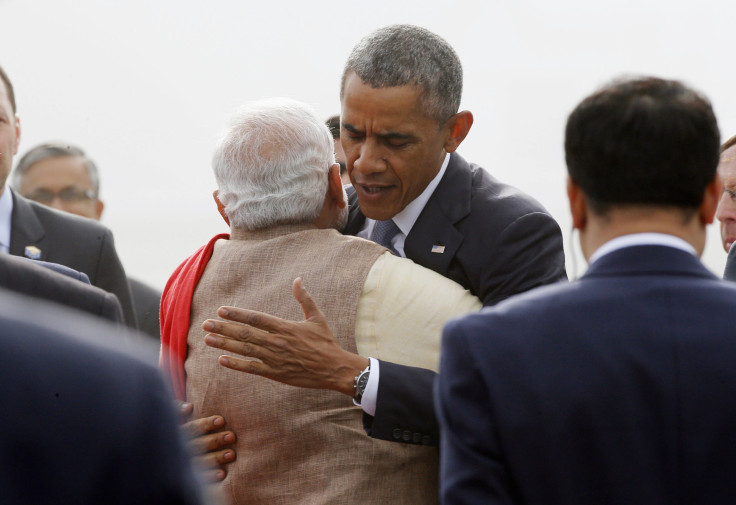India's Narendra Modi Will Monitor US Investments Into India

NEW DELHI -- Indian Prime Minister Narendra Modi made a strong pitch for attracting big-ticket investments from U.S. companies into India on Monday, saying that his office will monitor the progress of all big investment proposals in the infrastructure sector. Modi was speaking at the India-U.S. CEO Forum in New Delhi, and U.S. President Barack Obama, who is on a three-day visit to India as the chief guest for the country’s Republic Day celebrations, was in attendance.
Modi’s assurance is significant in light of the fact that large-scale infrastructure proposals in India often take years to come to fruition, owing to regulatory hurdles or political opposition that stall progress. To be sure, several government ministries already report on the progress of proposed projects to the prime minister’s office.
India ranks a poor 142 (out of 189 countries) on the World Bank’s Ease of Doing Business index. Modi wants to bring India's rank up to 50.
“We have to keep working to make it easier to do business,” Obama said while addressing the summit. Obama announced that the United States Trade and Development Agency would provide $2 billion for renewable energy projects in India. Obama also said that the Export-Import Bank of the United States will provide $1 billion in project financing to generate U.S. exports to India for two years.
On Sunday, Modi and Obama said that the two countries had moved toward breaking a six-year deadlock that has kept a civil nuclear deal between the two nations from being implemented.
Ever since he took office in May as the head of the first majority government in India since 1984, Modi has been making a strong pitch for attracting foreign investment, even wooing wealthy Indian expats to invest in their country of origin. In December, India announced it had cleared (via an executive order) a proposal to allow 49 percent direct foreign investment in domestic insurance companies. The following week, the Indian government announced the first steps aimed at reforming its health care and banking sector, even as it slashed health care budgets because of fiscal woes.
Modi also dismantled the Planning Commission, an institution set up in 1950 as part of a planned economic development model, and replaced it with a new think tank to be headed by Columbia University-trained economist Arvind Panagariya.
Although the U.S. is India’s largest trading partner, the U.S.' trade with China far exceeds that with India. As International Business Times noted, the $55.85 billion bilateral trade between the U.S and India during the January-to-October period last year is dwarfed by the $483.6 billion trade between the U.S. and China during the same period.
© Copyright IBTimes 2024. All rights reserved.




















